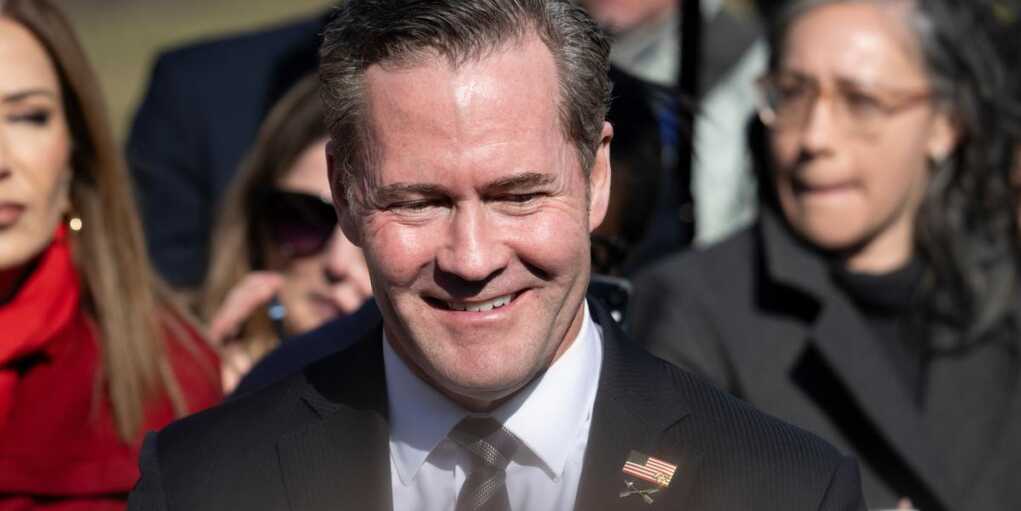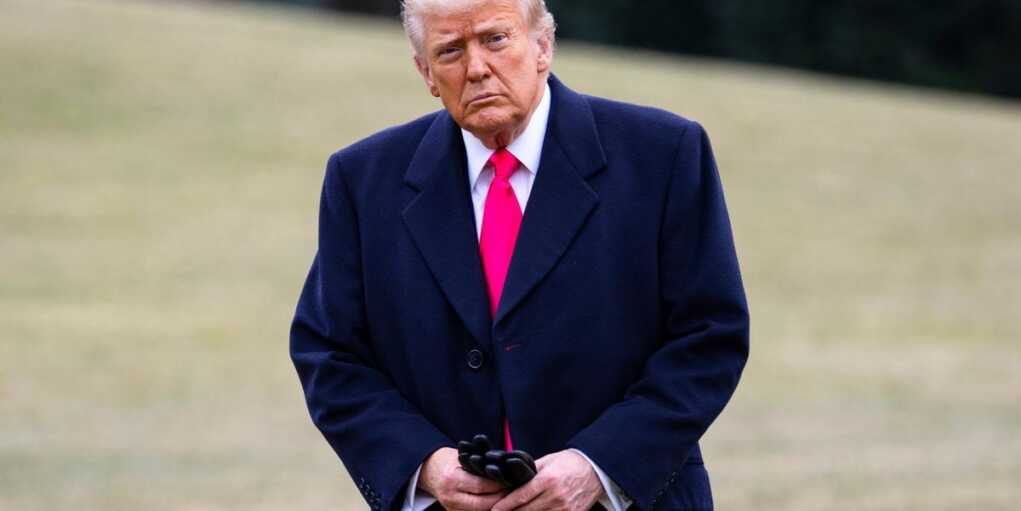High School Teacher Threatens Trump In Bizarre Facebook Rant
A Maine high school teacher has triggered widespread outrage—and a federal investigation—after publicly calling for the deaths of President Donald Trump and his supporters in a series of shocking Facebook posts. JoAnna St. Germain, an English teacher at Waterville Senior High School, wrote Tuesday that the U.S. Secret Service should “take out every single person […]
Team Trump Announces Huge Shakeup—He Is FIRED
National Security Adviser Mike Waltz and his deputy Alex Wong are reportedly preparing to exit the Trump administration, marking what could be the biggest shake-up yet within the President’s security inner circle since the start of his second term. According to CNN and Politico, both Waltz and Wong are expected to leave their positions in […]
Media Melts Down Over What Christians Are Wearing
The New York Times is getting skewered online for a tone-deaf report that seemingly “discovered” Christian cross necklaces — something millions of Americans have been wearing for generations. In an article published this week, the Times appeared shocked by the “prevalence” of cross necklaces, citing public figures like White House Press Secretary Karoline Leavitt and […]
Trump’s New Executive Order Targets Big Pharma
President Donald Trump’s latest executive order on healthcare transparency is being called a “radical” and “historic” move by leading patient advocacy groups. The new directive, issued in January and now entering implementation, mandates that healthcare providers clearly disclose the actual prices of services and prescription drugs—no more estimates, vague billing codes, or hidden costs. The […]
Trump’s Next Move Could Be the Ultimate Economic Weapon
As President Donald Trump ramps up his economic battle with China, a powerful new strategy is gaining attention: delisting Chinese companies from American stock exchanges. While some conservatives are wary of pushing too far, this tactic may be the ultimate weapon to rebalance the global playing field—and it’s one the U.S. can wield unilaterally. The […]
White House Correspondents’ Dinner Leads To Bizarre Controversy
The White House Correspondents’ Dinner turned into a public relations nightmare Saturday night after a shocking mistake exposed the media’s double standards and apparent carelessness. According to the Daily Caller, during the prestigious Washington, D.C., event, the dinner’s internal video feed incorrectly identified two black female journalists — causing a tidal wave of mockery and […]
Trump Will Bring Back Old Holiday—Sending Leftists Into Meltdown
Leftists are sure to be triggered by the latest announcement from President Donald Trump: he’s bringing back a cherished American holiday that progressive activists have worked hard to erase. On Sunday, Trump posted on Truth Social that he is officially reinstating Columbus Day, a holiday he says Democrats tried to destroy in favor of “woke” […]
Democrats Move to Give Illegal Aliens Another Big Gift
Illegal aliens with criminal convictions in Washington state could soon be granted “expedited” pardons and commutations under a Democrat-backed bill — potentially jumping ahead of American citizens in line for clemency. H.B. 1131, which has now passed both chambers of the state legislature, directs the Washington Clemency and Pardons Board to prioritize cases where a […]
Mike Rowe Says Trump’s Plan Could Backfire If America Isn’t Ready
President Trump’s tariff plan is poised to bring manufacturing jobs back to American soil—but one of the country’s most well-known blue-collar champions is sounding the alarm about what happens next. Mike Rowe, host of Dirty Jobs and longtime advocate for skilled labor, told comedian Theo Von this week that while he supports Trump’s efforts to […]
Trump’s Surprise Move on China Sends Markets Spinning
President Trump sparked new speculation Wednesday about the future of his trade war with China, following a report that he may soon slash tariffs on Chinese imports—just weeks after hitting Beijing with some of the harshest trade penalties in U.S. history. According to a Wall Street Journal exclusive, the Trump administration is considering a “tiered” […]
Guess Who’s Behind The Push to Decriminalize Illegal Immigration
A newly surfaced profile of Alex Soros, heir to George Soros’s massive left-wing network, is shedding light on how a handful of Soros-funded activist groups successfully pressured Democrats to back one of their most fringe ideas yet: decriminalizing illegal border crossings. According to New York Magazine, a coalition of eight progressive NGOs—seven of which receive […]
Are Deportations Happening Fast Enough? Trump Responds
President Donald Trump says his administration has delivered historic success in securing the southern border—but warns that federal courts are now the biggest obstacle to removing thousands of dangerous illegal immigrants. In an exclusive exchange with Daily Caller White House Correspondent Reagan Reese on Tuesday, Trump said he’s proud of what his administration has accomplished […]
Top Hospitals Are Finding “Loopholes” To Dodge Trump’s DEI Ban
The Mayo Clinic is scrambling to save its diversity agenda by renaming it—just weeks after President Trump signed an executive order banning all DEI-related programs tied to federal funding. But the rebrand may not be enough to dodge Washington’s crackdown. The world-renowned nonprofit medical group has renamed its “Office of Diversity, Equity, and Inclusion” to […]
China Shuts Off Rare Earth Pipeline In Devastating Blow To U.S. Industry
China has halted exports of several rare earth minerals essential to the U.S. tech, defense, and energy sectors—sending shockwaves through Washington and industry leaders alike. As of April 3, China officially stopped exporting seven heavy rare earth metals, along with rare earth magnets—resources vital to manufacturing electric vehicles, aircraft components, advanced weaponry, and high-tech electronics. […]
Senator’s Foreign Trip Sparks Outrage From Grieving Mothers
Sen. Chris Van Hollen is under fire from Angel Moms who say he’s ignoring American families destroyed by illegal alien crime—while fighting to bring a suspected MS-13 gang member back into the U.S. Van Hollen, a Democrat from Maryland, flew to El Salvador this week to visit 29-year-old Kilmar Abrego Garcia, who was deported by […]
























